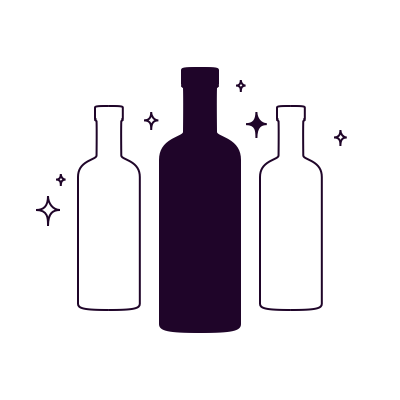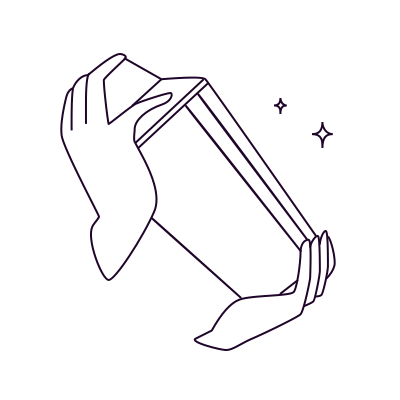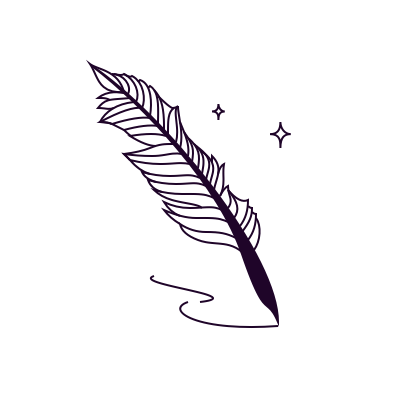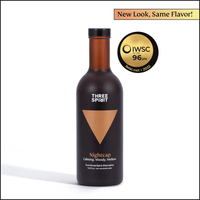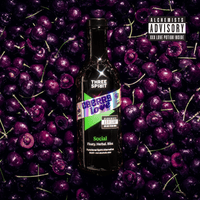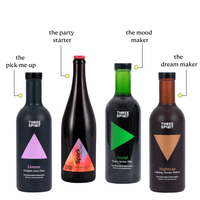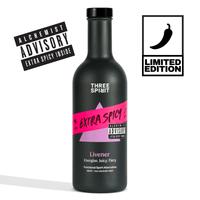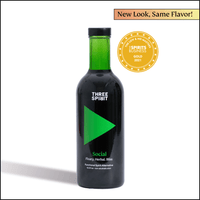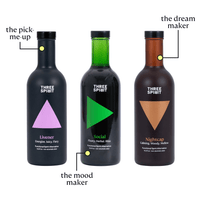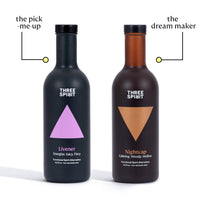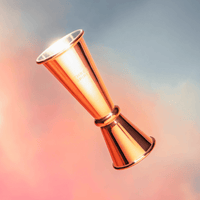Medicinal mushrooms, WTF?
By Geyan Surendran, Developmental Scientist at Three Spirit
@svrendran
Introducing our new series ‘Fungi Friends’.
Good on toast, in a soup or as part of a full English, but what is all this talk of medicinal mushrooms? Mushrooms are really having their moment, but do you know your chaga from your lion's mane? And what makes mycelia magic? Can they be used to enhance our lives beyond our fancy risotto or full moon party bucket? In this series, we’ll be going for a deep dive into the world of medicinal mushrooms.

Before we get started.
Most fungi are beneficial, and whilst some may cure disease, there are some that are lethal; so you have been warned. In Fungi Friends, we’re talking about the mushrooms that humans have been consuming for thousands of years, the ones that have functional benefits and won’t poison you. If you’re planning on going foraging please, please go with someone who knows what they are doing.
Top tip: These days mushroom connoisseurs exist in every town and city around the country, and many offer guided forages or 1:1 training. Google is your friend for this, but do get in touch if you want a recommendation as we may be able to hook you up.
Fungi through the ages.
Given fungi’s huge diversity, it isn’t surprising to learn that they also hold many properties that can be beneficial to human health. The ‘fruit’ of these organisms are not only nutritious and delicious but are often beneficial for us, containing many unique active compounds.
That’s why they’ve been used for thousands of years to treat illness and improve quality of life. Take Otzi the Iceman - a 5300-year-old mummy found in an alpine glacier - who was found to be carrying a birch polypore (a bracket fungus that grows on the trunks of birch trees) and an Amadou fungus in a pouch. It’s thought that Otzi was using the polypore as a medicine against parasites and the amadou for starting fires. An ancient mushroom pro, no less.
Throughout history, fungi have influenced culture, how we live, how we eat, how we find deeper meaning in the world - and even how we fight. The word ‘berserk’ comes from the old Norse word ‘berserkr’, which is the Viking name for turbo-charged warriors who’d taken a strong dose of Amanita Muscaria (those bright red toadstools with the white spots!) before a battle and developed bear-like strength. It goes without saying, but please don’t try that at home!
Looking further East, mushrooms are thought to be the key component in the ancient sacramental food ‘soma’ mentioned in the Rig Veda - an ancient bronze age poem from early India - as well as multiple other Hindu and Zoroastrian texts. Soma was consumed as an entheogen - a substance used to enhance spirituality through visions, increased awareness and feelings of euphoria - which became an important part of many religious ceremonies during this time.
Psilocybe or ‘magic mushrooms’ have been used traditionally in Mesoamerica since before the European conquest. Known as teonanácatl - the divine mushroom - these mushrooms were used as a medicine and in religious rituals. Since the 1960s magic mushrooms have become popularised in counterculture and in recent times - despite their illegality - micro-dosing psilocybin (their active ingredient) has become a popular therapeutic treatment for mood disorders.
Nutritious and functional, what’s not to love?
Did you know that yeast is a fungi friend too? This single-celled fungus is essential in the creation of most breads, alcoholic drinks, kombuchas, kefirs and vinegars. All the good stuff basically! Even the tartness in tonic water and fruit cordial is down to citric acid which is made from yeast. Artemisinic acid, a key ingredient in making many malaria medicines is made by - you guessed it - a type of modified yeast! Now you know.
So topline, fungi have become supremely useful to us humans; from culinary staples - including miso, soy sauce and blue cheese - to life-saving medicines. Without penicillium moulds, the world would be a very different place. But beyond helping us to cook up a storm or get rid of an STD, fungi can also help how we live, recover, work and play.
Mood-boosting you say?
Mushrooms have been used for thousands of years, and science is now catching up to explain how these wonder-foods work.

Chaga
Chaga is a potent immune booster that is full of antioxidants and has even been observed to lower blood sugar and cholesterol.

Reishi
Reishi has been observed to combat depression and fatigue.

Lion's Mane
Lion’s Mane can help treat mild cases of anxiety, enhances cognition and can even assist in treating people with brain injuries. Also features in our Social :)
These are just to name a few mushrooms and a few of their benefits! Different types of medicinal mushrooms have been shown in clinical trials to help with digestive issues, improve brain and heart health, and to treat conditions as wide as depression to many cancers.
Psilocybin, the wonder cure?
Recent studies have shown promise that psilocybin - the active ingredient in 'magic' mushrooms - can have significant effects in treating conditions such as PTSD, addictions and mood disorders.
In 2019, the Food and Drug Administration of the USA granted permission for mushroom assisted therapy to be used in treating patients with depression that was resistant to treatment by any other means. Meanwhile in San Francisco’s Silicon Valley, a community of bio-hackers have pioneered the art of sub-perceptual ‘micro-dosing’ - the technique of consuming tiny amounts of psychedelic mushrooms to elevate creativity, cognitive function and enhance workplace productivity - which has since become globally widespread.
For the love of mushies.
From the humble button mushroom to the luxurious truffle, from the brain-boosting lion’s mane to the psychedelic psilocybin mushroom, our fascinating fungi friends certainly have a lot to offer us!
Commonly found as capsules, tablets, and tinctures in western health food stores and traditional Chinese medicine centres alike. Chunks of mushrooms can be used to make teas, and some companies even make chocolates, crisps and hot drink sachets all containing all manner of medicinal mushrooms!
In this series, we’ll be going for a deep dive into the world of medicinal fungi. Our next deep dive will investigate a beautifully functional Asian mushroom called Reishi...
Hold tight!




